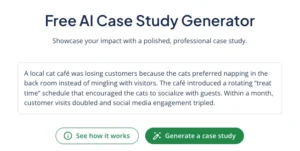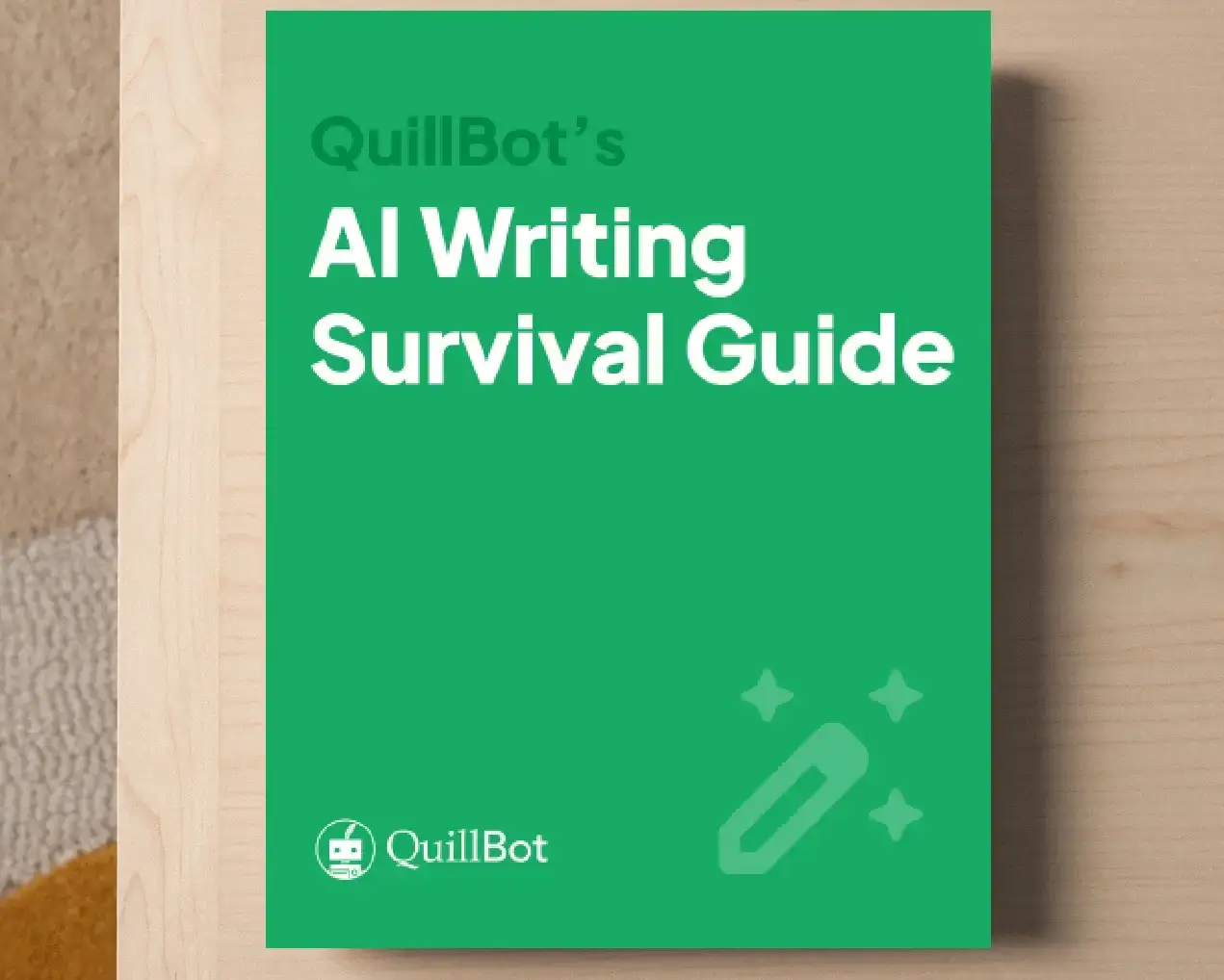How to Write a Case Study | AI Tools & Tips
The best way to demonstrate that something works is to show it in action. This is why case studies are such a powerful tool in marketing: they don’t just tell someone that an approach works—they offer definitive proof to potential customers and clients.
Of course, writing up a case study can be an involved process. Thankfully, QuillBot’s AI case study generator can help you quickly capture the key details of your case study, so you can focus on sharing your success story.
How to write a case study
Though no two case studies are alike, they generally follow a consistent structure.
1. Introduce the problem
Start by outlining the challenge you’re addressing. Make sure you’re specific enough that your audience can relate, but keep your explanation clear and concise.
Emphasize why this issue matters—for example, maybe it’s costing stakeholders time, money, or other valuable resources. Framing the stakes helps show why your solution is essential.
2. Outline the solution
Once you’ve established the need, you should detail your solution. Describe the product, service, or approach you’ve implemented.
Focus on how your solution directly addressed the problem you previously described and highlight any unique features or strategies that set it apart. You may be competing with other options—now is your chance to demonstrate why your approach is the best possible choice.
3. Showcase data that prove it works
Describing a solution is one thing; proving that it works is another. A case study shows your product or service in action.
Back up your story with data, metrics, or testimonials that irrefutably indicate its effectiveness. Whether it’s increased revenue, higher engagement, or improved efficiency, concrete evidence builds trust and credibility.
Using an AI case study generator
Writing up an entire case study can feel overwhelming, but it’s essential to clearly communicate the results of all your hard work. Fortunately, QuillBot’s AI case study generator can help you make quick work of your write-up. It really is as easy as the click of a button.
Below is a screenshot of QuillBot’s AI case study generator, complete with an example prompt.
QuillBot’s AI case study generator
Writing a strong prompt is key to your success when working with AI tools, so let’s break ours down a bit further. Recall that the core elements of a case study are introducing the problem, outlining the solution, and proving that it works. These sections are highlighted in the example below.
A local cat café was losing customers because the cats preferred napping in the back room instead of mingling with visitors. The café introduced a rotating “treat time” schedule that encouraged the cats to socialize with guests. Within a month, customer visits doubled and social media engagement tripled.
Frequently asked questions about writing a case study
- What is the purpose of a case study?
-
A case study is an approach that provides a detailed look at a topic, often by examining individuals in a real-world setting.
In marketing, case studies are used to highlight the effectiveness of a product or strategy. In academic research, they are used to illustrate or explore complex phenomena.
If you’re writing up a case study, QuillBot’s AI case study writer can help you create a draft in seconds.
- Can I use AI to write a case study?
-
AI tools are a great way to quickly write a case study!
QuillBot’s online case study generator can help you create a draft in seconds. Just provide a bit of information about your case study, then sit back and let the tool do the rest.
Cite this Quillbot article
We encourage the use of reliable sources in all types of writing. You can copy and paste the citation or click the "Cite this article" button to automatically add it to our free Citation Generator.
QuillBot. (2025, September 03). How to Write a Case Study | AI Tools & Tips. Quillbot. Retrieved January 23, 2026, from https://quillbot.com/blog/ai-writing-tools/write-a-case-study-with-ai/


